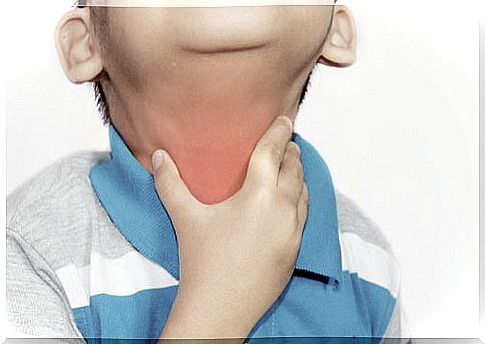What Is Diphtheria?

Diphtheria is an infectious disease caused by the bacterium Corynebacterium diphtheriae . Although it is very contagious, it is not so common to occur in developed countries, as there is a vaccine to prevent this disease. It often spreads in regions where people are not vaccinated.
diphtheria symptoms
Many of the people who are infected do not usually have severe symptoms. But in other cases the disease can even cause death.
This disease produces a series of toxins that reach the bloodstream and then pass through the heart, brain and other organs, causing serious damage.
These are some of the symptoms that usually appear:
- Airway obstruction.
- Fever.
- Chills.
- Sore throat.
- Cough.
- Hoarseness.
- Difficulty breathing.
- Difficulty swallowing.
- Noisy breathing.
- Appearance of thick greyish, dense and thick membranes.
- Increased nasal secretion.
Diphtheria complications
This disease has an incubation period of 2 to 5 days and usually affects vital organs. Therefore, it is extremely important to pay attention to the possible appearance of any of the symptoms. Here are the complications that diphtheria can cause if not treated in time:
nervous system damage
When the disease affects the nerves, muscle paralysis can occur, which causes difficulties in walking, swallowing and even speaking. In the worst case, a person with diphtheria who has not received medical care can die due to paralysis of the muscles responsible for the respiratory process.

heart damage
As we mentioned earlier, this disease produces toxins that reach the bloodstream and affect vital organs, including the heart. It can cause inflammation of the heart muscle, which could cause cardiac arrest.
It is possible to notice damage in this organ with the appearance of fatigue and palpitations.
diphtheria treatment
If you suspect you may have this disease, it is important to get treatment immediately, even before you have made an effective diagnosis. To treat people who have diphtheria, hospitalization is necessary.
At the same time, the isolation of the patient is essential, as it is a very contagious disease. In more delicate cases, it is even necessary for the patient to be transferred to the intensive care ward. Treatment is mainly based on:
- antibiotics
They are responsible for eliminating the bacteria that are present in the body, which makes them less likely that the disease will spread more easily, thus preventing contagion to other people. Generally, the antibiotics used are penicillin or erythromycin.
- Antitoxin
It is administered intravenously or intramuscularly. With it, it is possible to neutralize the progress of the infection into the bloodstream, which prevents it from reaching the organs of the body. The antitoxin can cause allergic reactions in some people. Therefore, it is necessary to perform skin tests for allergy before administering it.
How to prevent diphtheria
The tpa vaccine prevents diphtheria and other serious illnesses. It consists of an inactive toxin that does not harm the body and leads to the production of antibodies capable of neutralizing diphtheria bacteria. Thus, they prevent the appearance of the disease.
In order for it to be effective enough, it is necessary to administer five doses of the vaccine to children.
For adults, it is necessary to receive the dose every 10 years. In addition, people traveling to regions where there is a possibility of contagion or who have had contact with a person infected with diphtheria should also take the booster dose.
This does not apply to people who have been vaccinated within the past five years.

Cutaneous Diphtheria
This disease can also affect the skin and cause typical reactions of redness, pain and inflammation. In addition, it can cause the appearance of ulcers covered by a gray membrane.
Like diphtheria that affects the airways, skin diphtheria can also occur in tropical regions and the infection of people living in overcrowded conditions is more recurrent.
Although diphtheria is considered a low-risk disease due to the existence of the vaccine, it is important to have information about it because it is very easy to spread and, in tropical climates, it is often common. Prevention can prevent any complications.









